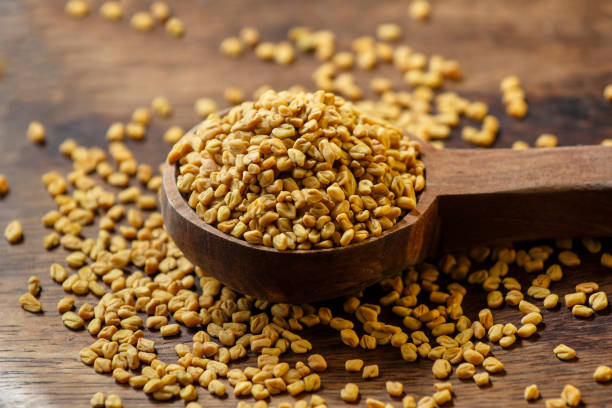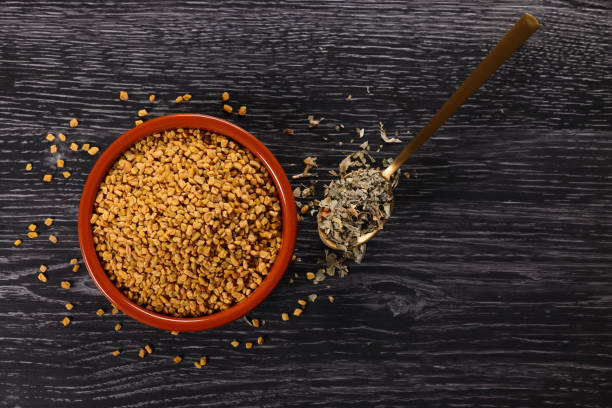Fenugreek
A plant from the legume family is fenugreek. The most often utilized component of the plant is the seed, which has been dried and pulverized. About 45% of the fiber in the seeds is insoluble. They do, however, also include soluble fiber, such as galactomannan. Fenugreek has been demonstrated to provide health advantages due to its high fiber content, including blood sugar stabilization, cholesterol-lowering, and hunger control. Fenugreek acts by delaying the absorption of carbohydrates and fats and decreasing stomach emptying. This results in a decrease in appetite and improved blood sugar management.
In a research of 18 healthy individuals with obesity, it was shown that taking 8 grams of fenugreek fiber instead of 4 grams significantly decreased hunger. The following meal was smaller for participants because they felt fuller. Additionally, it appears that fenugreek may aid individuals in consuming less fat. For instance, consuming 1.2 grams of fenugreek seed extract reduced daily fat consumption by 17% in a trial of 12 healthy males. They consumed 12% fewer calories on a daily basis as a result. Furthermore, a review of 12 randomized controlled research revealed that fenugreek can decrease cholesterol and blood sugar levels. Fenugreek is safe and has minimal to no adverse effects, according to research.












